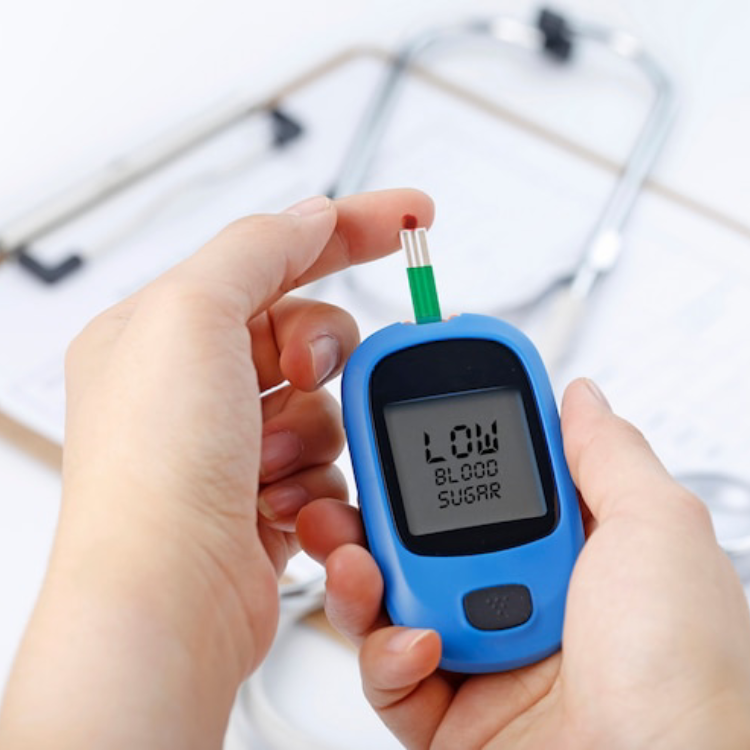Diabetes
Diabetes is a chronic metabolic disorder characterized by elevated blood sugar levels (hyperglycemia) resulting from either insufficient insulin production, ineffective use of insulin, or both. There are several types of diabetes, including type 1 diabetes, type 2 diabetes, gestational diabetes, and other less common forms.
Type 1: Diabetes is an autoimmune condition in which the immune system attacks and destroys insulin-producing beta cells in the pancreas. This results in little to no insulin production, necessitating lifelong insulin therapy for survival.
Type 2: Diabetes, the most common form, typically develops in adulthood and is often associated with obesity, sedentary lifestyle, and genetic predisposition. In type 2 diabetes, the body either becomes resistant to the effects of insulin or doesn't produce enough insulin to maintain normal blood sugar levels. Management of type 2 diabetes often involves lifestyle modifications (e.g., healthy diet, regular exercise, weight management) and may also include oral medications or insulin therapy.

Gestational diabetes occurs during pregnancy and is characterized by elevated blood sugar levels that may pose risks to both the mother and the baby. While gestational diabetes usually resolves after childbirth, women who have had gestational diabetes are at increased risk of developing type 2 diabetes later in life. Common symptoms of diabetes include increased thirst, frequent urination, unexplained weight loss, fatigue, blurred vision, and slow wound healing. However, some individuals with type 2 diabetes may have no symptoms initially, leading to delayed diagnosis and complications.
Long-term complications of diabetes can affect various organs and systems in the body, including the eyes (diabetic retinopathy), kidneys (diabetic nephropathy), nerves (diabetic neuropathy), and cardiovascular system (heart disease, stroke). Proper management of diabetes, including maintaining tight control of blood sugar levels, blood pressure, and cholesterol, is essential for reducing the risk of complications and improving overall health outcomes. Diabetes management also involves regular monitoring of blood sugar levels, adherence to prescribed medications, routine medical check-ups, and education about diabetes self-care, including proper nutrition, physical activity, blood sugar monitoring, and insulin administration for those with type 1 diabetes.
Prevention of type 2 diabetes focuses on lifestyle interventions aimed at reducing modifiable risk factors such as obesity, unhealthy diet, and physical inactivity. Public health strategies to promote healthy living, improve access to nutritious foods, and create supportive environments for physical activity are essential for preventing the increasing prevalence of type 2 diabetes worldwide. Overall, diabetes is a complex and multifaceted condition that requires comprehensive management approaches encompassing medical treatment, lifestyle modifications, and ongoing support to optimize health outcomes and enhance quality of life for individuals living with diabetes.
